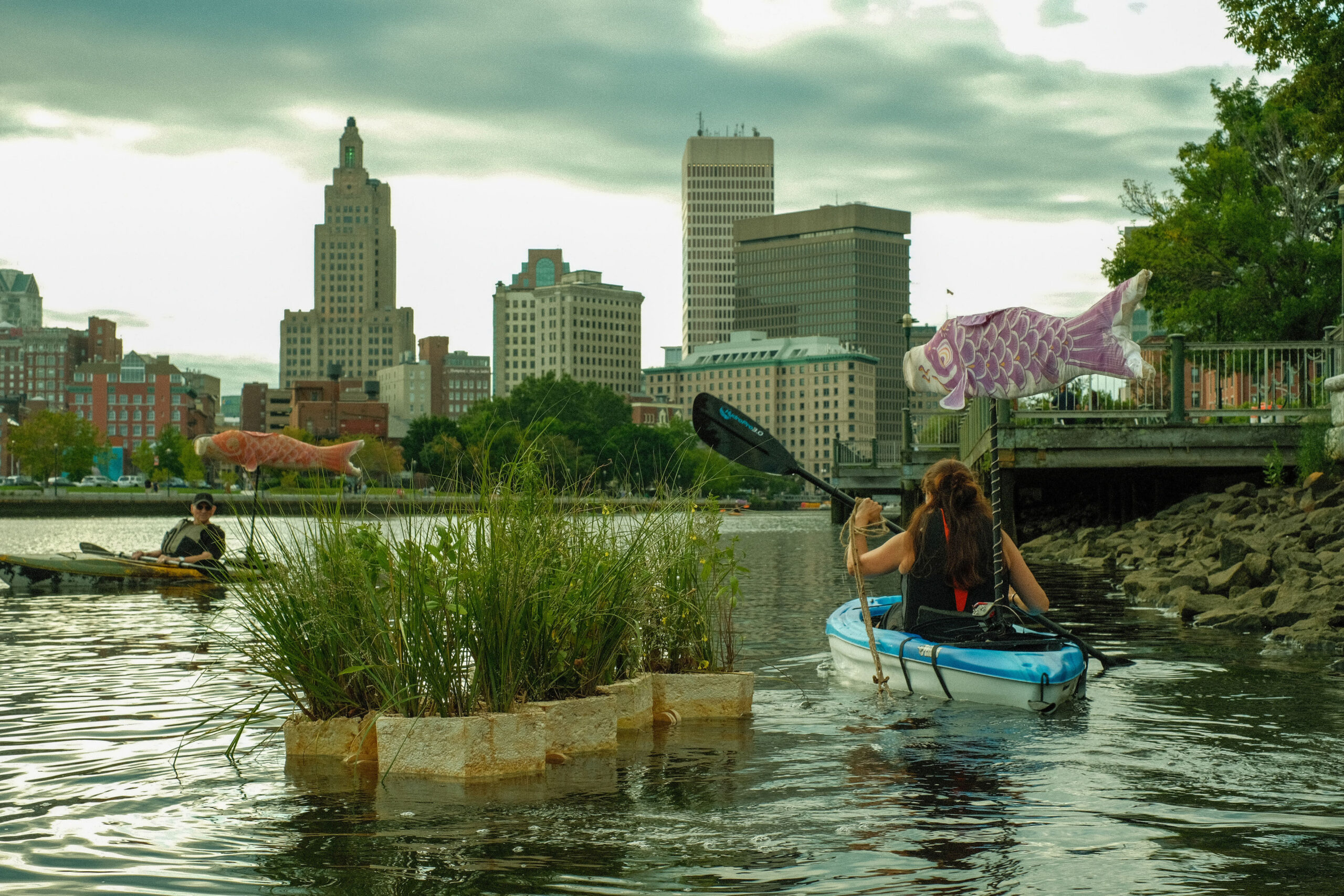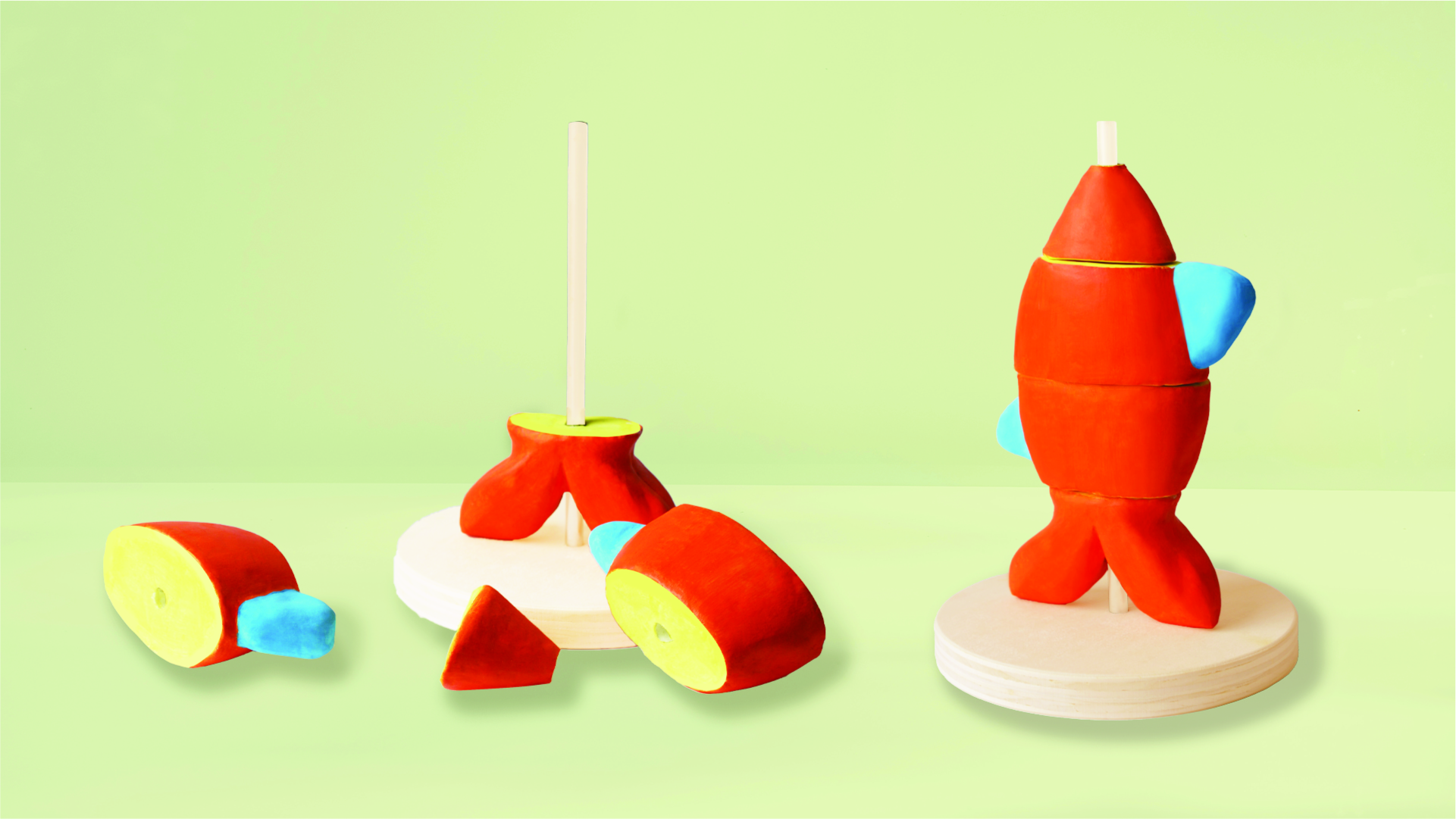Rhode Island School of Design Announces Shortlisted Finalists in the Sustainable Markets Initiative’s Global Terra Carta Design Lab Competition



Biopods. Photo: Courtesy RISD
PROVIDENCE, RI – June 26, 2024 – Rhode Island School of Design (RISD) today announces its shortlisted finalists in the Sustainable Markets Initiative’s global Terra Carta Design Lab competition, which seeks student-led, high-impact solutions to the climate and biodiversity crisis.
The Terra Carta Design Lab was launched by His Majesty King Charles III, then the Prince of Wales, and Sir Jony Ive in 2021 in partnership with the Royal College of Art in London. This year’s Design Lab took its search to a global stage, partnering with RISD, along with three other design schools from across the world: Dubai Institute of Design and Innovation (UAE); National Institute of Design Ahmedabad (India) and the Royal College of Art (UK)].
Ten finalists from each of these prestigious global design schools have been evaluated and shortlisted by each respective school, with the final review to be led by Sir Jony Ive and Sustainable Markets Initiative CEO Jennifer Jordan-Saifi this summer. RISD’s 10 finalists were selected by a diverse and dynamic panel of jurists from RISD and beyond, including designers, architects, scientists, material researchers and public art curators. The eight winners, two from each school, will be announced this autumn and will receive funding and mentorship to further develop their innovations and enable them to be scaled and taken to market.
The work by students and recent alums showcases a wide breadth of innovations and solutions to help address the climate and biodiversity crisis utilizing systems in nature, and include supply chain traceability, regenerative yard practices, biomaterial innovations, sustainable food practices, construction industry material sourcing solutions and interdisciplinary environmental education.
- BIOPODS: Biopods are human-scale ecosystem modules designed to remediate water quality, reintroduce vital fringe marshes into urban environments and engage the public in citizen science.
- FUTUREYARD: Revolutionizing our connection to earth, the community-focused FutureYard app simplifies regeneration and empowers people with access to green spaces to increase native biodiversity, soil health and carbon storage.
- MAP COLLECTIVE: Map Collective provides a software solution for corporate and government sustainability and supply chain teams to automate supply chain transparency, sustainability metrics tracking and decarbonization planning, and procurement decisions using AI and data mining.
- HOPPI: Hoppi is revolutionizing the toy industry by transforming brewery waste into 100% biodegradable, nontoxic toys, reducing the amount of plastic entering the environment and minimizing the toy industry’s carbon footprint.
- SHAPESHFT: Aiming to reframe the conversation about plastics manufacturing and new materials development in the 21st century, SHAPESHFT uses discarded mixed plastics to create a usable artistic medium for producing public art, sculptures and research materials helping localized arts production.
- SHELLF LIFE: Shellf Life transforms discarded mollusk shells into a groundbreaking biomaterial, offering a versatile, sustainable and aesthetically captivating alternative to conventional materials across diverse applications, fostering collaboration and redefining the relationship between the built environment and nature.
- SOILLESS: Soilless is an affordable, sustainable, indoor garden system that empowers everyone to grow their own fresh, healthy and sustainable food.
- SURPLUS: Surplus is a consolidated logistics platform revolutionizing the flows of surplus construction materials and addressing the critical issue of waste influx in the industry. By providing a peer-to-peer marketplace connecting buyers and sellers in real time, Surplus streamlines the process, allowing contractors to offload surplus materials efficiently.
- WASTES HARMONIZE WORLDS: The building industry faces entropy with abandoned buildings contributing to urban decay. Only 12.2% of brick and clay tile waste is recycled, with most ending up in landfills. This project explores biocements for binding these construction and demolition wastes, creating recyclable materials that enhance comfort while preserving traditional characteristics and extending the history of clay from a new perspective.
- WILD LIVES: Wild Lives is an interdisciplinary environmental education movement using trail cameras to encourage youth to actively observe, explore and connect to local ecosystems. As they gather footage of wildlife, students analyze their findings through creative map-making, scientific illustration and storytelling.
“The principles guiding the Sustainable Markets Initiative’s Terra Carta Design Lab align beautifully with RISD’s priorities, particularly with our commitment to centering art and design as the pillars upholding a more sustainable world,” says RISD Provost Touba Ghadessi. “RISD students and recent alums are immersed in complex inquiries, framed by a justice-based approach that they deploy effectively on a daily basis: from biomimicry studies in the Edna W. Lawrence Nature Lab, to NSF-funded research projects proposing regenerative and equitable futures, to collaborations with nonprofits and forward-thinking corporations. Our students and alums are, therefore, well positioned to grapple with deeply intricate and intersectional environmental issues such as climate change. This is what schools of art and design do. We imagine, we create, we envision new possibilities and we realize them.”
“At the Sustainable Markets Initiative we are accelerating a sustainable future through the collision of ideas and co-creation between the private sector and the next generation of global leaders, including our Design Lab finalists,”said Jennifer Jordan-Saifi, CEO of the Sustainable Markets Initiative. “Their work exemplifies what is possible when we put design, engineering, innovation, technology, art and global experience at the heart of systems-level change. At the SMI we are finding ways to connect industry, financial and country systems with the many innovations that are emerging around the world so that, together, we can scale solutions globally. As one people, sharing one planet and facing one common future, we have much to learn from this optimistic, multi-disciplinary and multi-generational approach that is embodied in the Terra Carta Design Lab.”
Sir Jony Ive, chancellor of the Royal College of Art and Terra Carta Design Lab Global judge added, “I am thrilled that the Terra Carta Design lab has gathered momentum this year to include four international design schools. The lab elevates the rigorous and imaginative ideas from all these students, and demonstrates the power and importance of multidisciplinary design and collaboration in meeting global challenges.”
The finalists and winners from the inaugural Design Lab launched in 2021 have since secured over £35m* in funding and have gone on to win further accolades including the Earthshot Prize.
Photos available here.
##
Media Contacts:
Dalia Stoniene
Blue Medium
dalia@bluemedium.com
Jaime Marland
Senior Director, Public Relations / RISD
jmarland@risd.edu
401 427-6954

Hoppi. Photo: Courtesy RISD
About the Sustainable Markets Initiative
Founded by His Majesty King Charles III in 2020, then the Prince of Wales, the Sustainable Markets Initiative has become the world’s ‘go-to’ private sector organisation on transition. Launched in 2021, the Terra Carta serves as the Sustainable Markets Initiative’s mandate with a focus on accelerating positive results for Nature, People and Planet through real economy action. Read more: www.sustainable-markets.org
Inaugural Terra Carta Design Lab winners and shortlisted projects:
The winners from the inaugural Sustainable Markets Initiative Terra Carta Design Lab (run in partnership with the RCA), included:
- Zelp: A wearable device for cows to reduce methane emissions (winner)
- The Tyre Collective: A clean-tech start-up spearheading the capture and monitoring of tyre wear (has recently launched its crowd sourcing fund) (winner)
- Amphitex (amphico.uk):The first 100% recyclable and chemical-free outdoor performance textile (winner)
- Aerseeds: Aerodynamic seed pods made from food waste for plant and tree restoration (winner)
- Notpla, one of the shortlisted projects won the prestigious Earthshot Prize in 2022
About Rhode Island School of Design
RISD (pronounced “RIZ-dee”) is a creative community founded in 1877 in Providence, Rhode Island. Today, we enroll 2,567 students hailing from 60 countries. Led by a committed faculty, they are engaged in 44 full-time bachelor’s and master’s degree programs and supported by a worldwide network of over 31,000 alumni who demonstrate the vital role artists and designers play in today’s society.
Beyond facts and figures, what is the spirit of this community? Through a cross-disciplinary curriculum of studio-based learning and rigorous study in the liberal arts, RISD students are encouraged to develop their own personal creative processes, but they are united by one guiding principle: in order to create, one must question. In cultivating expansive and elastic thinking, RISD seeks to activate a critical exchange that empowers artists, designers and scholars to generate and challenge the ideas that shape our world. RISD’s mission, at both the college and museum, is not only to educate students and the public in the creation and appreciation of works of art and design, but to transmit that knowledge and make global contributions. Visit risd.edu to learn more.